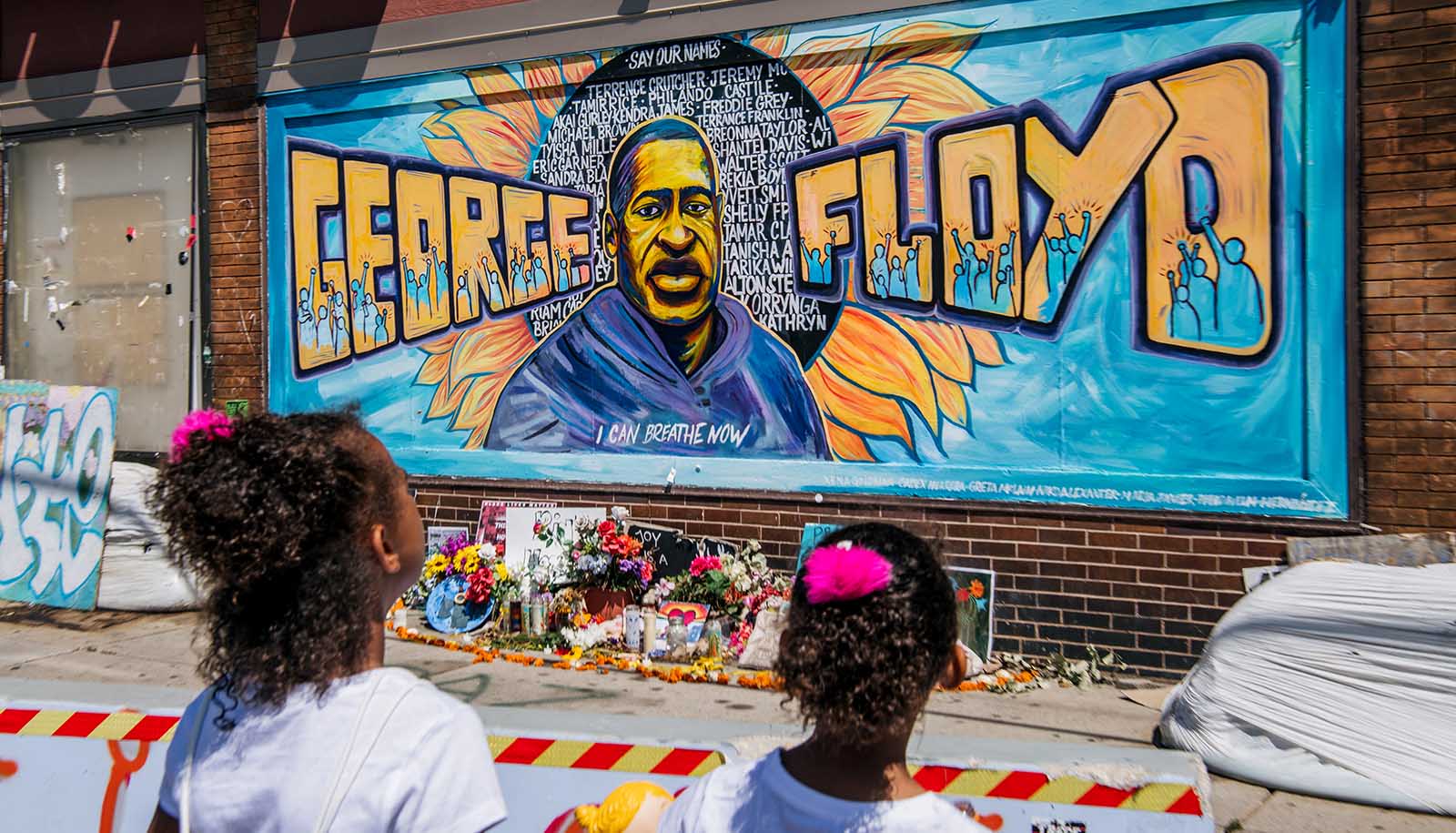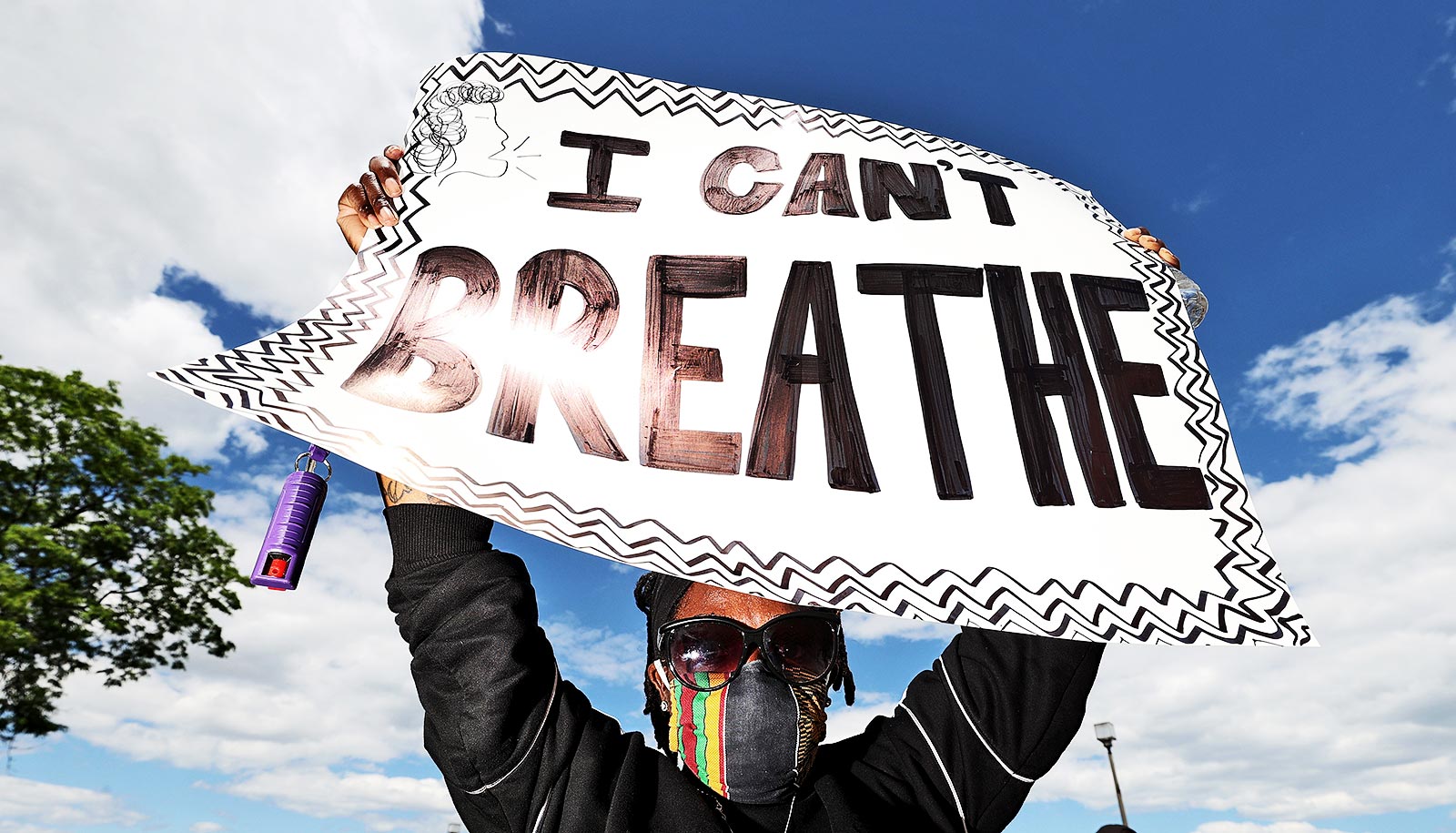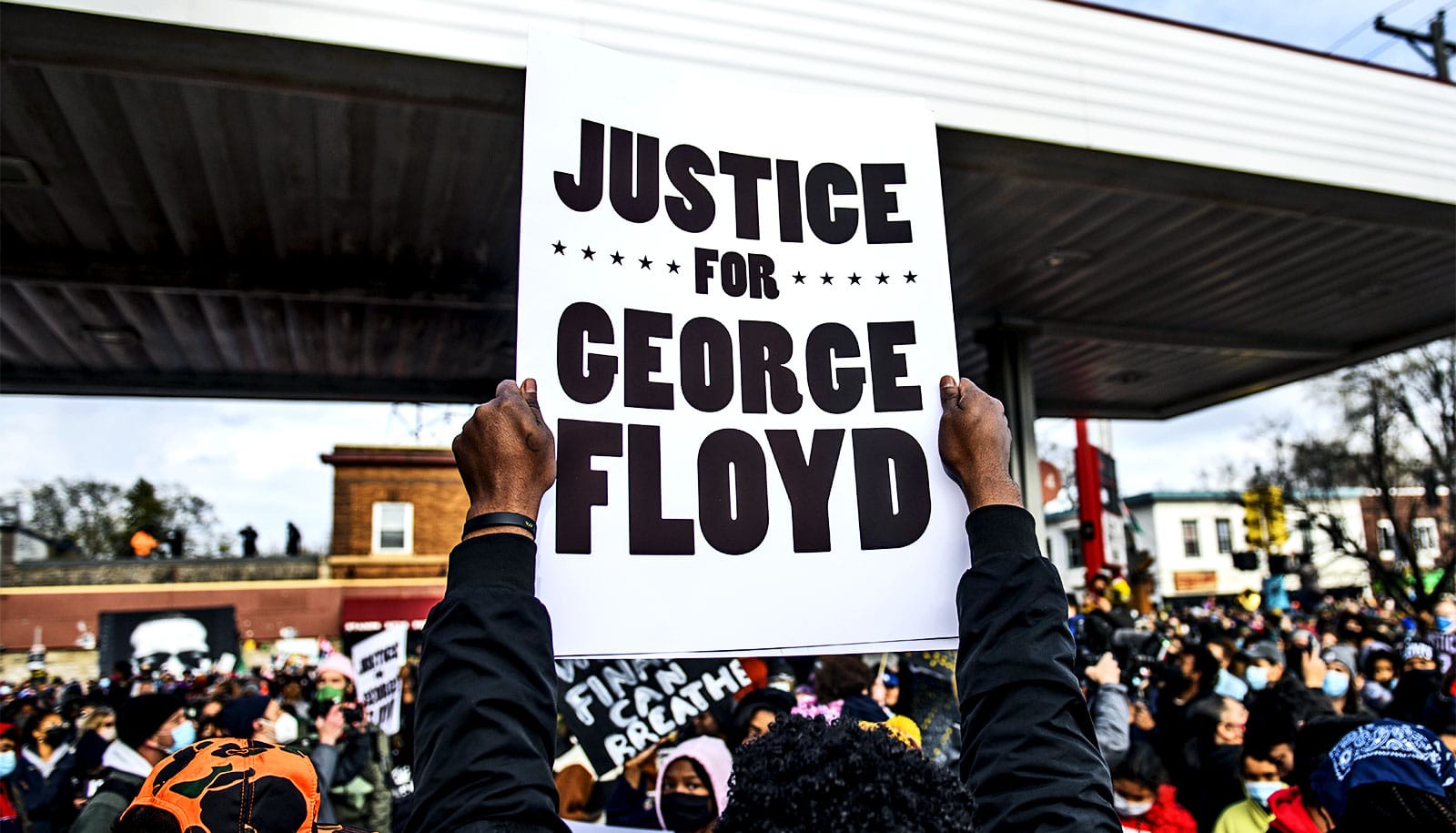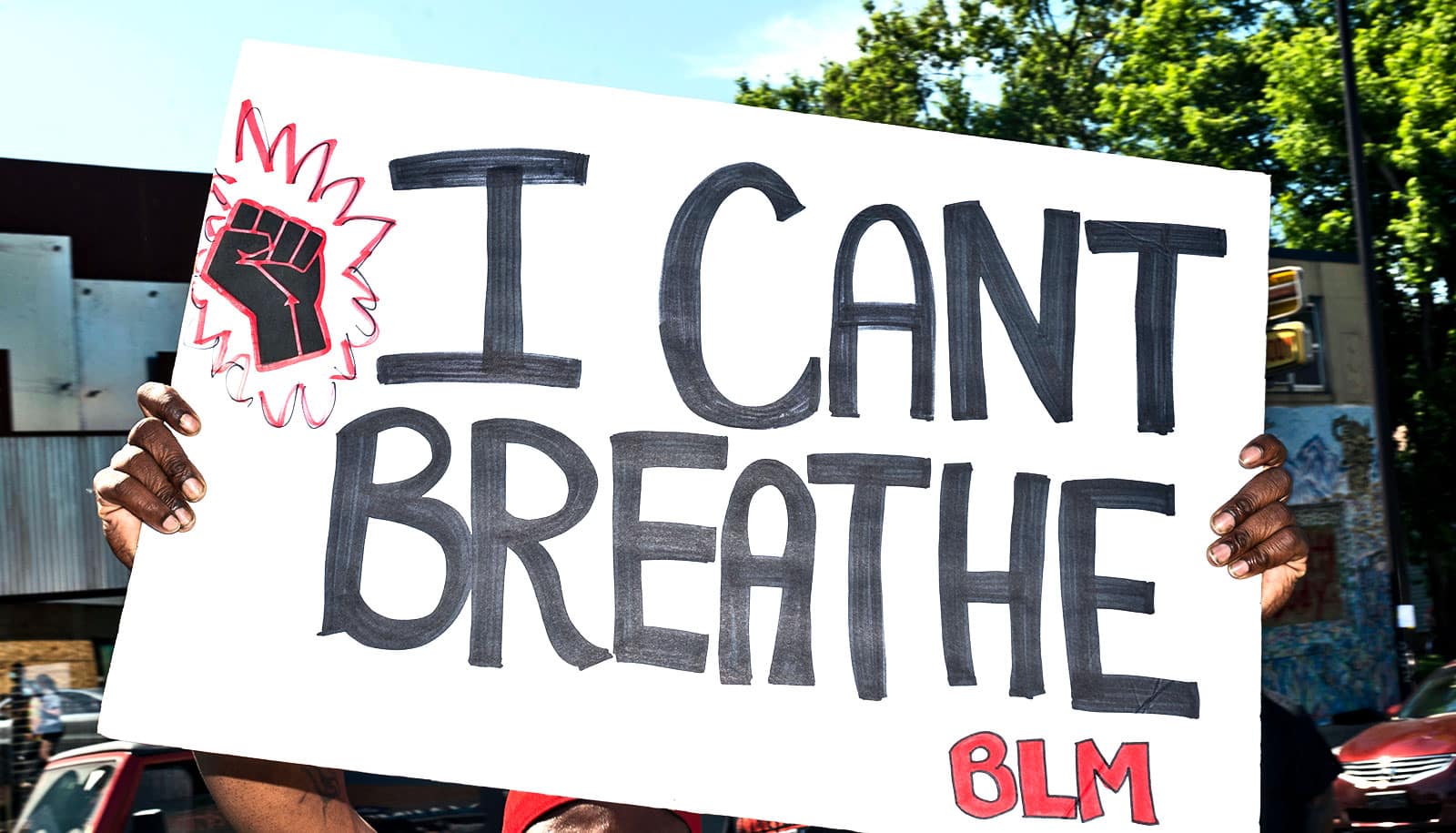It’s been two years since Derek Chauvin murdered George Floyd during a police stop by keeping his knee on Floyd’s neck. What has changed since?
Chauvin’s actions, that continued despite protests from a growing crowd of onlookers, sparked nation-wide protests and pressure for police reform. Since then, Chauvin and three other police officers involved in the stop have been convicted of multiple charges.
“We cannot ignore the fact that policing operates within a society with stark economic inequalities and racial segregation.”
Stanford University law professors Ralph Richard Banks and David Sklansky discuss the law, policing, and racism in the US below.
Banks is a professor of law at Stanford Law School, the co-founder and faculty director of the Stanford Center for Racial Justice, and professor, by courtesy, at the School of Education.
Sklansky is a professor of Law and faculty co-director of the Stanford Criminal Justice Center. He is the author of A Pattern of Violence: How the Law Classifies Crimes and What It Means for Justice (Harvard University Press, 2021).
How should we think about the killing of George Floyd and the protests that followed?
Banks: The killing of George Floyd prompted a nationwide reckoning with racism unlike any in the past half century. It drew attention around the world and soon encompassed issues far beyond the domain of policing.
Did the killing of George Floyd highlight problems with policing or broader problems in American society?
Banks: All of the above. There are lots of different, though related, problems we might connect to the killing of George Floyd. We begin, of course, with the misbehavior of individual police officers. But the problems are not limited to the proverbial few bad apples.
The training that police officers receive (or perhaps more accurately don’t receive) and the rules, both statutory and constitutional, that govern their behavior are in need of reform. These are big challenges due both to on-going disagreement about optimal training and rules and also because of how radically decentralized policing is in American society. With some 18,000 different law enforcement agencies in the United States, attaining widespread adoption of the right policies and practices is no easy matter.
Too, we cannot ignore the fact that policing operates within a society with stark economic inequalities and racial segregation. These features of society limit opportunities for education and employment for African Americans in particular, and contribute to myriad racial disparities, including with respect to crime. Finally, we are a society that is awash in guns. I find it difficult to imagine creating the sort of safe communities we want so long as such weapons are so plentiful.
One year ago, ex-Minneapolis police officer Derek Chauvin was convicted of murdering George Floyd by asphyxiation. How rare is that—a conviction of a police officer in a situation like this one?
Sklansky: It’s very unusual for police officers to be charged with murder, let alone convicted. It’s not quite as rare as it used to be: more officers were charged with murder or manslaughter across the country in 2021 than in any previous year. But we’re still talking about only a small fraction of the more than 1,000 people killed by the police each year.
In February, Thomas Lane, J. Alexander Kueng, and Tou Thao, the three ex-Minneapolis police officers who watched as former officer Derek Chauvin murdered George Floyd by asphyxiation were also convicted. How significant were those verdicts, given that Chauvin had already been found guilty?
Sklansky: Lane, Kueng, and Thao were convicted in federal court of violating Floyd’s civil rights by failing to intervene to stop Chauvin.
In some ways, this verdict was even more significant than Chauvin’s conviction. It is extraordinarily rare for officers to be charged with crimes for inaction, as opposed to action.
The fact that these three officers were convicted for standing by while Chauvin murdered George Floyd sends a strong message to officers that they have a duty to intervene if they see another officer using unjustified force, and that failure to do so can send them to prison. And no one is better positioned to stop a police officer from using unjustified force than his or her fellow officers.
Do these cases have anything to do with “qualified immunity” for police officers?
Sklansky: These were criminal prosecutions, and qualified immunity is a doctrine applied in civil cases, when police officers are sued for violating constitutional rights. The doctrine, which the Supreme Court invented, protects police officers from civil liability for constitutional violations unless the rules they broke were “clearly established.”
In practice this protects officers from civil liability for their misconduct unless a court previously found that virtually identical conduct violated the federal Constitution—which is rarely the case, given the almost infinite ways in which the situations that officers confront can vary from each other.
What kind of reforms might be needed in policing?
Banks: There has been a lot of talk about defunding the police, as opposed to merely reforming the police. My own view is that we should ask police to do less; there’s no reason for example why the primary response to a person with a mental health episode is someone with a gun.
Hopefully the trend toward non-law enforcement response to non-violent incidents will continue. But recognizing the need for other sorts of professionals doesn’t mean we should try to eliminate police officers, or even dramatically cut their funding. If we want officers to be better trained, for example, that might require more funding, not less.
Sklansky: There are lots of steps that can and should be taken. There’s a strong case—increasingly embraced across party lines—for rolling back or eliminating qualified immunity.
The same can be said for bright-line prohibitions on particular police tactics that have caused a disproportionate number of deaths and are rarely if ever justified, and these definitely include chokeholds and other constraints that make breathing difficult.
There is also much to be said for having police killings investigated and prosecuted by an agency other than the local district attorney’s office, which works day in and day out with local police departments. Part of what has made the prosecutions arising out of George Floyd’s killing effective and credible is that they have been handled by the Minnesota Attorney General’s Office and the US Department of Justice. Most criminal cases arising out of police killings, though, are still handled by local prosecutors.
Many police stops that spiral into violence shouldn’t have happened in the first place: we use police for lots of things that unarmed civilians might be able to handle better and with less risk. We should stop encouraging officers to aggressively stop pedestrians and pull over cars on hunches and pretexts; the encounters too often wind up targeting Black Americans and other marginalized racial groups, and they often turn violent. And for the stops that are justified, we should train officers in de-escalation tactics and require those tactics to be used.
Finally, a lot of what drives violence between police and the public has to do with things outside of policing: the vast number of guns in the United States, and our failure to provide adequate mental health services. We’ve turned the police and the prisons into our de facto mental health system, and they were never designed for that. Tackling these problems would also help us tackle the problem of police violence.
What are the prospects for any of these reforms being adopted?
Sklansky: It’s hard to say, because the politics around policing and criminal justice today—like the politics around everything else—is so polarized and toxic.
But the kinds of reforms I’ve just mentioned with regard to law enforcement are consistently endorsed by a majority of Americans across lines of race, party, and ideology. So I do think there is hope for significant progress on police reform.
Even with regard to guns, polls consistently show broad public support for measures such as improving background checks and banning assault-style weapons and high-capacity ammunition magazines. There is room for forging consensus across lines of race, party, and ideology on approaches to the problem of police violence. But it will take work.
Banks: I think of myself as an optimistic person. But when I think of the many problems that coalesce in the killing of George Floyd, I find myself being less optimistic, though still hopeful. It took years to realize that one can detach hope from optimism. A lack of optimism does not mean a death of hope.
Two years ago, protests seemed to be everywhere, and people from all walks of life were realizing the extent to which racism can imperil our democracy and block us from being the nation we want and need to be.
But now, I don’t feel that same type of energy. I wonder, and worry, about our repeating the mistakes we’ve made before. During the civil rights era, our nation committed itself to undoing Jim Crow segregation and the racial caste system. The Supreme Court issued unprecedented rulings and Congress passed unprecedented legislation, but after about a decade we grew tired of battling racism and moved on.
That relinquishment of our racial justice commitment reprised what happened a century earlier when, after the abolition of slavery and the adoption of three Amendments to the Constitution, Congress passed landmark legislation and undertook reconstruction efforts to make freedom real, and then abandoned them after about a decade.
So here we are a half century after the civil rights era, and, by some measures, racial disparities remain as great now as they were then. The Black/white wealth gap, for example, is no smaller now than in 1970.
What we need is to realize is that the problems that racism has bequeathed us are less like an illness that the proper medicine will remedy, and more like a chronic ailment that must be continuously managed. The stakes are not only about preventing more George Floyds; they are about the viability of our democratic experiment.
Source: Stanford University



